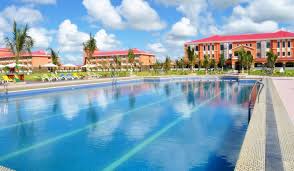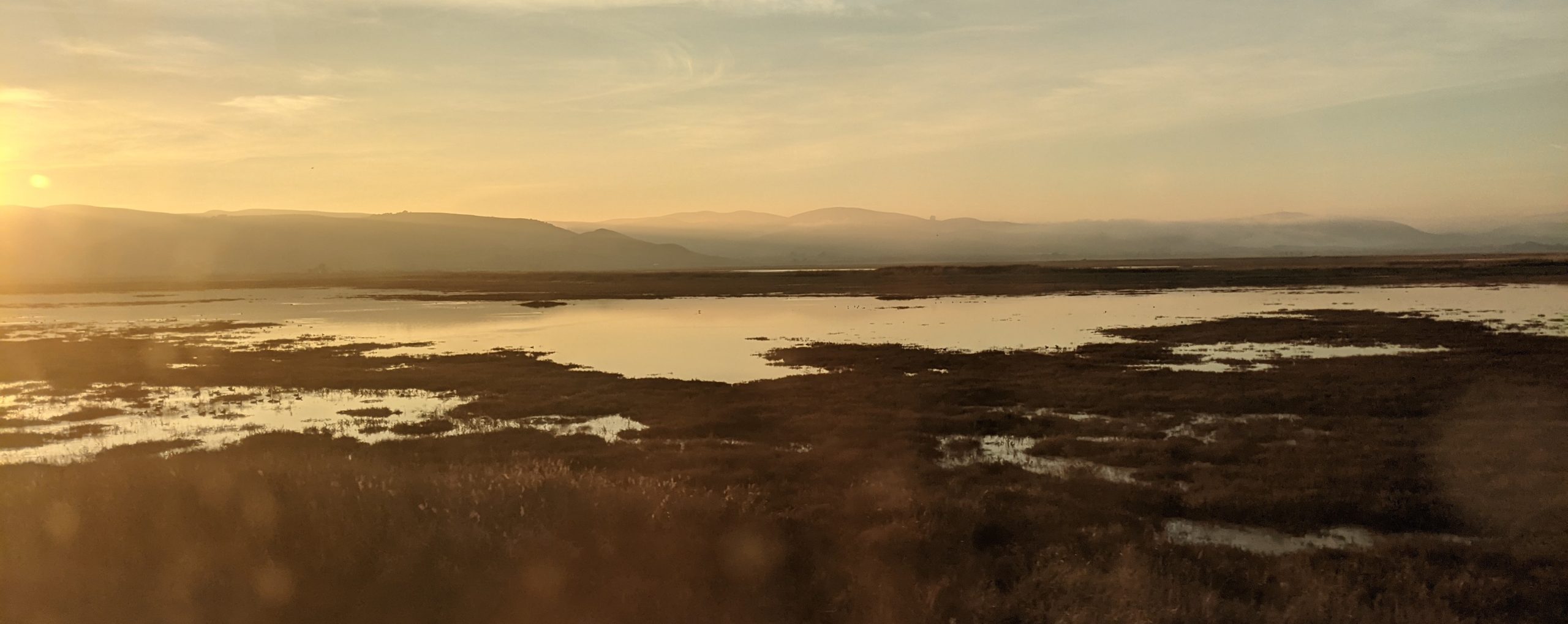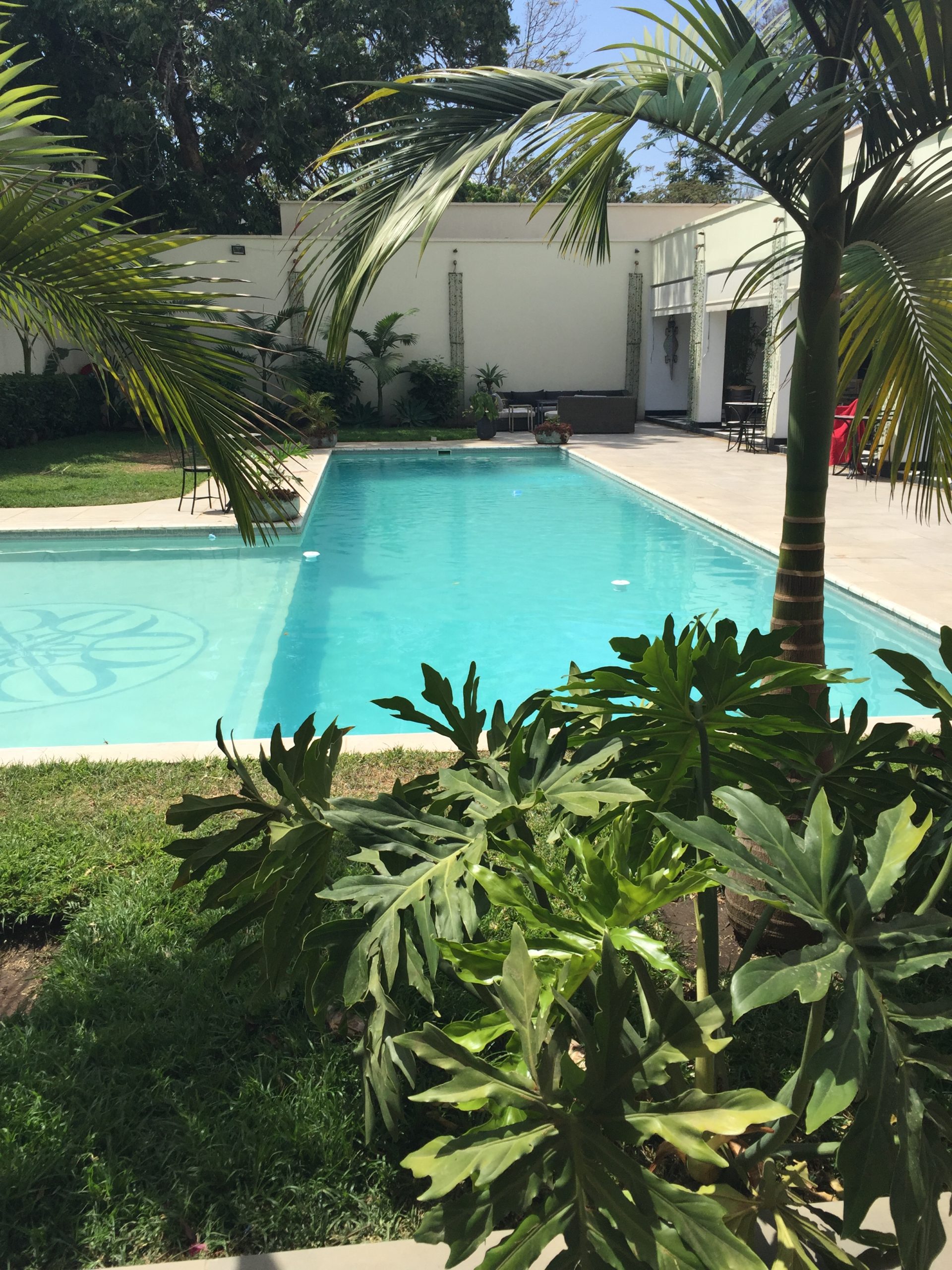This post was originally published at littlethings07.
Every city contains many cities. They run parallel to each other, divided by education, or ethnicity, or religion, or preferences. You can live in a city your whole life without seeing many of its sides.
I lived in Lusaka for only a year and a half. I was dropped into one specific city: the Lusaka of the central suburbs. There are many lovely things about this city: spacious lawns and swimming pools, the gorgeous flowers of Lusaka’s year-round bloom. There are team sports in the perfect evening weather, and barbecues with twinkling fairy lights. Our offices were there, and our grocery stores and houses and schools and arts spaces. This Lusaka was exclusively dominated by foreigners, and some of them loved it so much they never left.
I spent my first nine months in this Lusaka. I was always somewhat uneasy. Because I had naively not expected this, and because it had flaws that were impossible to ignore.
***
There’s a view among Americans that international development work is a noble sacrifice for the greater good. You do make some sacrifices. Being away from family is tough, and Zambia does not have all the amenities of the United States.
But in other ways, I lived a life of luxury that I only could’ve dreamed of before. Foreign development workers often have a maid, a cook, and a gardener. We live in only the poshest areas of cities in houses with pools, and make enough money to be able to eat out all the time and still save half our salary.
We have the money to create mini-versions of our home countries, complete with the same food and people and amenities. Foreign development workers live in luxurious subcities – cities that would cease to function without the work of their often-poorly paid local employees – subsets of cities where most people live on less than $5 a day.
Certain organizations give $90 stipends per day in Zambia in addition to salary and lodging, I guess for the “hardship” of being in a beautiful, safe, capital city. It’s common for foreigners to be paid 3x what locals make for the same job, and get benefits beyond what companies even dream of for locals. (One company I knew in India would spend tens of thousands of dollars to make sure their foreign employees had multiple air filters and sponsored sealed apartments to protect them from the pollution, whereas Indian employees received only money enough for half an air filter. Apparently, Indians don’t get sick from pollution).
“Expat culture” is noxious in other ways. Racism towards Zambians abounds (including the curious idea that Africans are ruining Africa), complaints about pretty much any aspect of life are common. Many foreigners never learn the basics of Zambian history or culture. Even in cases where there is not explicit racism, foreigners often exclude Zambians from “development” conversations about their own country, social events, and more.
Indeed, both the “sacrifice” and “greater good” part are questionable. On my more cynical days, I think of development as a failed neocolonial enterprise, more than undone by the underhanded machinations of rich states towards poor ones. That said, there is a reason I stayed in this field and continue to donate to certain development organisations. Vaccines and cash transfers change peoples’ lives, whether administered by the local government or a multinational NGO. But that is for another time. This is about the choices foreign development workers make every day.
***
Thanks to my colleagues, I began to spend time in the other Lusakas. Now, I still have the maps of Lusaka memorised – the white foreigner map, but also the parallel Asian maps – the workers from prison who spoke to me in the language my grandparents forgot, the mothers in hijab at a nonalcoholic bar, the children with chopsticks in a warehouse. And some of the rest of it, the most of the Lusakas, – the gas station at the corner with the cardboard box milkshakes – the shops of fabric from Holland and Java and Guangzhou (Or Canton, lost in time) – the fruit stalls – only a glimpse of many other Lusakas that I never took enough care to see.
***
With wealth, comes expanded choices. An American graduate from an elite university like me can choose to work in development for whatever reasons: a drive for social good, a superiority complex, a sense of adventure. You can choose which country you’re going to live in (at least pre-pandemic, Americans weren’t really limited by visas). And you can choose what to do when you are there.
Any rich foreigner in Lusaka with a modicum of self-awareness realises the issues with

the status quo. But most choose to absolve themselves of any responsibility, making excuses to keep passively propping up bad systems. For my first year in Lusaka, I made the excuse that I had been dropped into circumstances beyond my control. Yet in reality, I had the privilege and ability to decide what my time in Lusaka was going to be like.
Some of my choices were good, and some of them were bad.
I could’ve followed through with Nyanja classes. I could’ve firmly called out prejudice among similarly sequestered expats. I could’ve said no to the parties with bad influences. I could’ve chosen to fight more for fair pay. I could have worked to center Zambian voices more in both casual and professional conversation. I could’ve read more Zambian history. I could’ve made the choice to see Lusaka as a place to rest in, and discover, and savour. I could’ve chosen to stay.
***
My time in the other Lusakas was too little, too late.
***
I am more sympathetic than I was two years ago towards white Americans who want to spend most of their time abroad with white Americans. Far from home, you want to be around people like you. It’s a strange and non-optimal way to live, but I can understand.
But it’s inexcusable to refuse to call out racism, bigotry, and superiority complexes among your peers. It’s inexcusable to know literally nothing about the history and culture of the place you live in. It’s inexcusable to be a guest in a country and to feel comfortable about being 100x as rich as most of the people you purport to be working for. It’s inexcusable to not take active steps to combat all of this. I still regret every time I did not make the right choices.
***
During the pandemic, I spend half my dreams driving down the Lusaka roads. Half the roads are lead to where they shouldn’t, and half the people are who they shouldn’t be. Everyone is always drinking.
Recurring dreams, I read, mean that you have unfinished business.
***
I don’t want to end on a fatalistic note. I’ve seen plenty of examples of people standing up to injustice, centering the voices of the marginalized, and treating the places they live in with respect. And I’ve changed too: frankly, I was a complete brat my first ~year in Lusaka, realised this due to many better people than I (including the host of this blog! don’t be afraid to call out your friends), and have worked to be less of a brat since. I wrote a blog post a while ago for foreign development workers on the change we can guarantee, and the change we cannot:
“An irksome development sector habit is people patting themselves on the back for doing some utilitarian good, and then not treating people around them with respect. This ranges from the merely obnoxious to the very serious, including: trying to get the “best deal” from house help instead of paying them a living wage, insulting programme beneficiaries’ way of life behind their backs, speaking condescendingly to colleagues, and treating waiters as subhuman. I’ve been guilty of some of these things.
What I’ve learned is – I want to have social impact, but above all, I would like to be kind. And kindness, treating everyone you encounter as a human who is worthy of respect, is easier to guarantee positive impact from than massive social programmes.
Maybe your perfectly-executed programme will change the lives of thousands of farmers, but maybe it will be neutralised by a bad harvest, or a market failure, or a change in funding, or something else beyond your control. But the way you speak to and treat your employee will surely affect her as a person, either negatively or positively.”
Foreign development workers are probably (thankfully?) not going to drastically change the world for better or worse. But there are plenty of ways to expand your sub-cities, and to make the sub-cities you live in a little bit better, a little bit fairer, and a little bit kinder.
Appendix: some practical questions to ask yourself as an “expat” in development
Are you, a person with power in the sector, fighting for equal pay for equal work, regardless of nationality, at your company?
If you hire people to clean your house, do you pay them a fair wage? Do you treat them with respect (ie, not yelling at them, not complaining if they missed a spot (either to their face or behind their back), giving a fair wage without complaint, generally treating them like a human)?
Are you, especially at higher-level positions, willing to cede your job to a local employee?
Are you taking steps to learn the language of the country you’re living in? The history? Other culture? This is not the job of your one local friend. There are books, classes, and the internet.
Do you call out racist and otherwise prejudiced comments by your friends and acquaintances?
Do you treat being able to live and work in another country as the privilege that it is?

